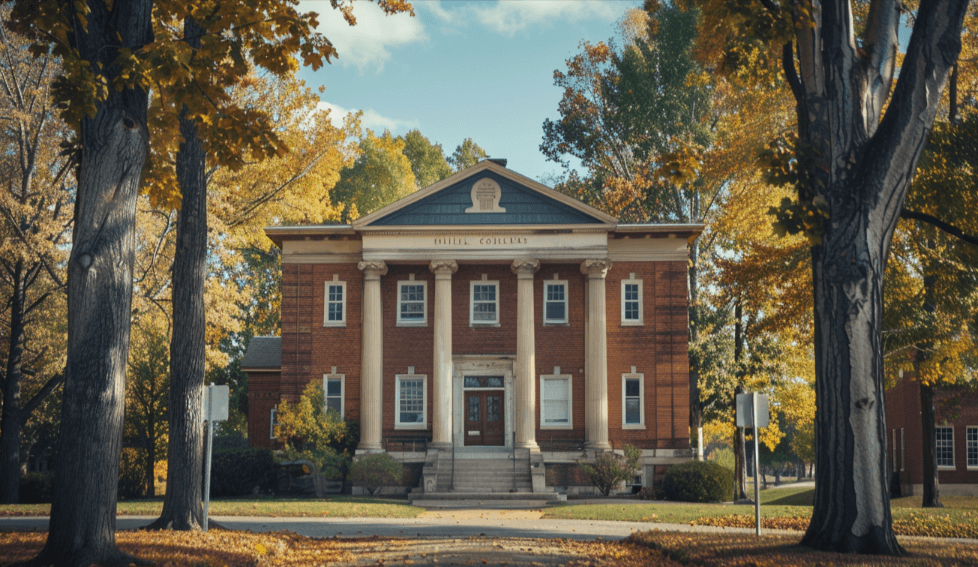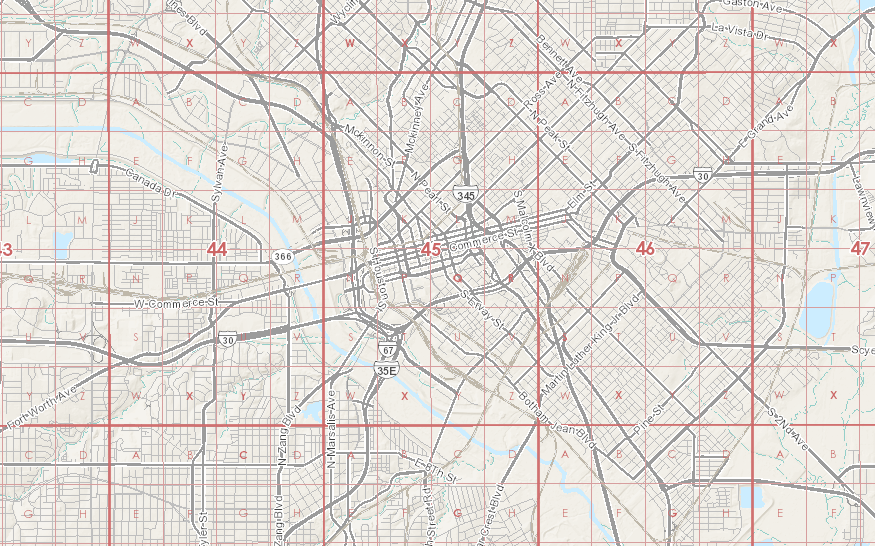Grandfathered property lines in commercial real estate represent an important aspect of property ownership and development, holding significant implications for buyers, sellers, and developers. These property lines are established under old regulations that have since changed, allowing existing boundaries to remain intact despite new zoning laws.
Finding Your Property Lines
How Are Property Lines Marked?
Commercial property lines are typically marked by physical markers such as stakes, monuments, or other landmarks that were placed during initial surveys. In urban areas, these might align with recognizable features like the edges of buildings or roads. Understanding these markers is essential for property owners to ascertain the extent of their property, which is critical when planning any construction, sale, or purchase.
How To Find Property Lines on a Map
Property lines can be viewed on maps available through local government offices such as the county recorder or surveyor’s office. Many jurisdictions also provide digital GIS (Geographic Information Systems) maps online that show detailed property boundaries and related information. Users can often access these maps for free, allowing them to view the specifics of property boundaries from their computers or mobile devices.
How To Find Property Lines for Free
Aside from utilizing local government resources, property owners can access various online tools and apps that provide property line information at no cost. Sites like the Bureau of Land Management (BLM) or the National Map offer tools where one can view detailed aerial imagery and mapped data. There are also websites that are location-specific. Here’s a good example of Dallas county property lines.
These resources are invaluable for preliminary research, though it’s recommended to confirm your findings with a professional survey for absolute legal certainty. Better safe than sorry!
Changes in Property Lines
Redrawing property lines involves a meticulous process that necessitates coordination with local government planning departments. It’s common in scenarios where landowners seek to optimize the use of their land or resolve discrepancies that arise from outdated surveys. Legal adjustments are managed through formal applications that include updated survey reports, neighbor agreements, and municipal approval. The finalization of these adjustments is crucial, not only for current ownership rights but also for setting a clear precedent for future transactions or developments.
Grandfathering Property Lines
Grandfathered property lines are legally recognized under previous regulations, allowing properties to maintain boundaries that no longer comply with current zoning laws. This is especially relevant in urban areas, where zoning changes can be frequent and significant. Maintaining these older demarcations avoids disrupting established businesses or residential uses that were planned based on original zoning allowances. By preserving these lines, the law ensures stability and predictability for property owners, which supports continued investment and development.
Movement of Property Lines
When property lines are moved, it is usually in response to specific development needs or municipal enhancements like road expansions. This adjustment requires a detailed boundary survey, community consultations to address any public concerns, and rigorous documentation to alter the official plat maps. Final approval from zoning boards or city councils ensures that these new boundaries are legally binding and recognized in public records, safeguarding the interests of all stakeholders involved.
Determining Property Lines

The establishment of property lines is a critical step in property development and management, requiring precision and expert knowledge. Surveyors employ a variety of tools—from traditional transit and tape measures to modern electronic distance and GPS instruments—to map out land divisions accurately. These professionals must consider historical easements, natural land shifts, and previous legal descriptions to define property boundaries. The resulting documents are essential for clarifying ownership extents and are pivotal in any legal disputes or development approvals.
Role of Professional Surveyors
Professional surveyors play a big role here, especially when it comes to complex commercial properties with substantial value estimations. They interpret and integrate information from multiple sources, including municipal records, historical maps, and physical site inspections, to provide a comprehensive analysis of property boundaries. Their expert assessments ensure that property transactions are based on sound legal and factual foundations.
Understanding Grandfathered Rights
Grandfathered property rights allow property owners to continue using their property in a way that was legally permissible under the zoning or building codes that were in effect when the property was originally developed, even though new laws or regulations might no longer permit such use.
In commercial real estate, this can mean the ability to maintain a building’s structure or use that doesn’t conform to current zoning changes. This legal protection is pretty important, as it provides stability and predictability, enabling businesses to continue operations without the need for costly modifications or relocations.
Grandfathering Provision and the Legacy Clause
The grandfathering provision and legacy clause are elements in real estate law that protect investments and land uses established under previous regulations. These provisions are particularly important in commercial real estate where substantial investments are made based on the stability of existing laws. They ensure that businesses and developments are not unduly penalized or forced into non-compliance by changes in zoning laws, which could otherwise disrupt business operations and financial planning.
The Legal Backbone of Grandfathered Rights
Grandfathered rights are supported by both statutory law and court decisions that recognize the fairness in allowing continued use of property under its original conditions. This legal backbone helps prevent the arbitrary revocation of established rights, ensuring that property owners are not left at a disadvantage by sudden regulatory changes. Legal precedents often emphasize the importance of these rights in maintaining economic stability and reducing undue burdens on property owners.
The Role of Local Governments and Regulations

Local governments play a significant role in shaping the landscape of commercial real estate through zoning ordinances and land-use regulations. While these bodies are tasked with the development and implementation of rules that reflect the community’s needs and growth objectives, they also have the responsibility to respect and uphold grandfathered rights. This balance is crucial in fostering urban development while ensuring that existing businesses are not negatively impacted by new regulatory frameworks.
Ordinance That Provides Homeowners with Grandfathered Rights
Specific local ordinances are enacted to delineate the conditions under which grandfathered rights are recognized and protected. These laws provide clear guidelines on how property lines, usages, and other factors are treated when they predate current regulations. A simple Google search can help locate these ordinances.
Legal and Due Diligence Considerations
Navigating grandfathered property rights requires careful legal consideration, particularly concerning compliance and potential disputes. Property owners should be vigilant about any local government plans that might affect their rights and be prepared to assert their grandfathered status through legal channels if necessary.
Due Diligence for Property Buyers
Prospective buyers of properties with grandfathered rights must perform thorough due diligence to understand precisely what is being purchased. This includes verifying the legal status of the grandfathered rights, understanding any limitations on property use, and assessing potential risks associated with future regulatory changes. Engaging with knowledgeable real estate attorneys and consultants who specialize in local zoning laws is advisable to ensure a comprehensive evaluation.
Working with a Real Estate Attorney
Given the complexities and legal nuances associated with grandfathered property rights, hiring a skilled real estate attorney is invaluable. An attorney can provide crucial guidance on the interpretation of grandfather clauses, assist in navigating zoning board interactions, and help in litigating any disputes that arise from grandfathered rights issues. And generally speaking, if the transaction is big enough, it’s advisable to get a real estate attorney anyway, as there are many pitfalls that you’re going to want to avoid.

